When it comes to those telltale traits of a narcissist, you might be surprised to find that your cat could give them a run for their money. Cats are independent creatures, often acting like they’re the center of the universe. Sounds familiar? Whether you’re a proud cat owner or an intrigued observer, you’ll probably notice some similarities between our feline companions and our human friends with a few narcissistic tendencies. Let’s dive into the top 15 things cats do that narcissists would absolutely approve of.
1. They Demand Constant Attention
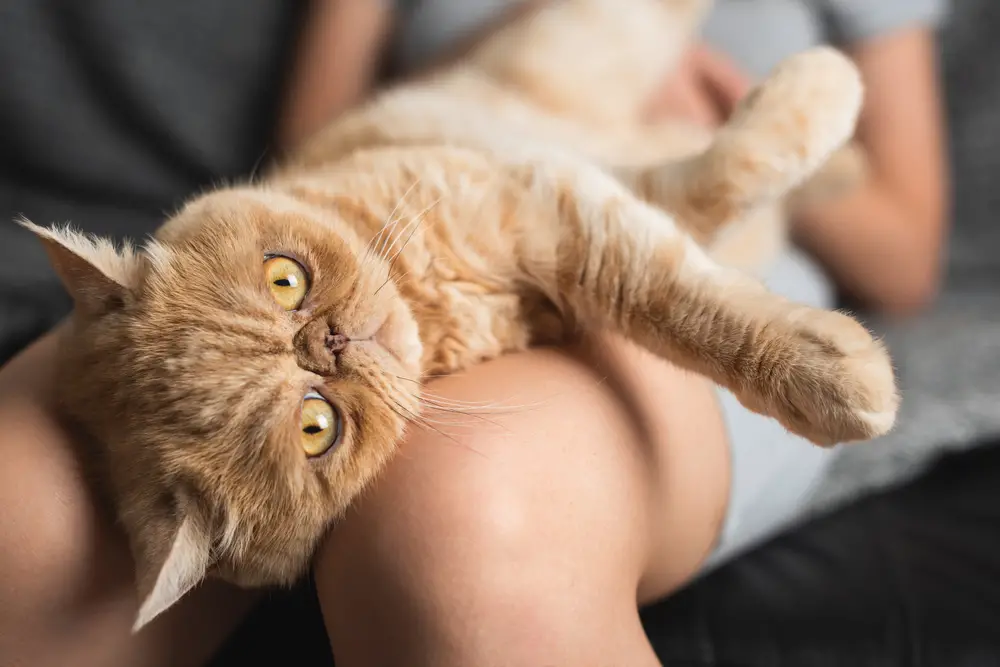
If you’ve ever owned a cat, you know that when they want attention, they expect you to drop everything and oblige. Narcissists are similar, craving the spotlight and often orchestrating scenarios that ensure they remain the focus. A study by Dr. W. Keith Campbell, published in the Journal of Personality and Social Psychology, highlights how narcissists tend to be more charming and attention-seeking, much like your cat rubbing against your leg when they want some love. The minute you start petting them, they purr with satisfaction, basking in your undivided attention. But don’t be fooled; the moment they’ve had enough, they’ll saunter away without a second thought.
Cats and narcissists share a unique ability to make you feel like the most important person in the world when it suits them. This can be endearing, but it can also be manipulative. They make you work to maintain their attention, often leaving you wondering what you did to deserve their sudden disinterest. Just like a narcissist thrives on admiration, a cat thrives on the adoration of their human counterparts. And just like that, you’re hooked, eager to get back in their good graces.
2. They Maintain A Regal Demeanor
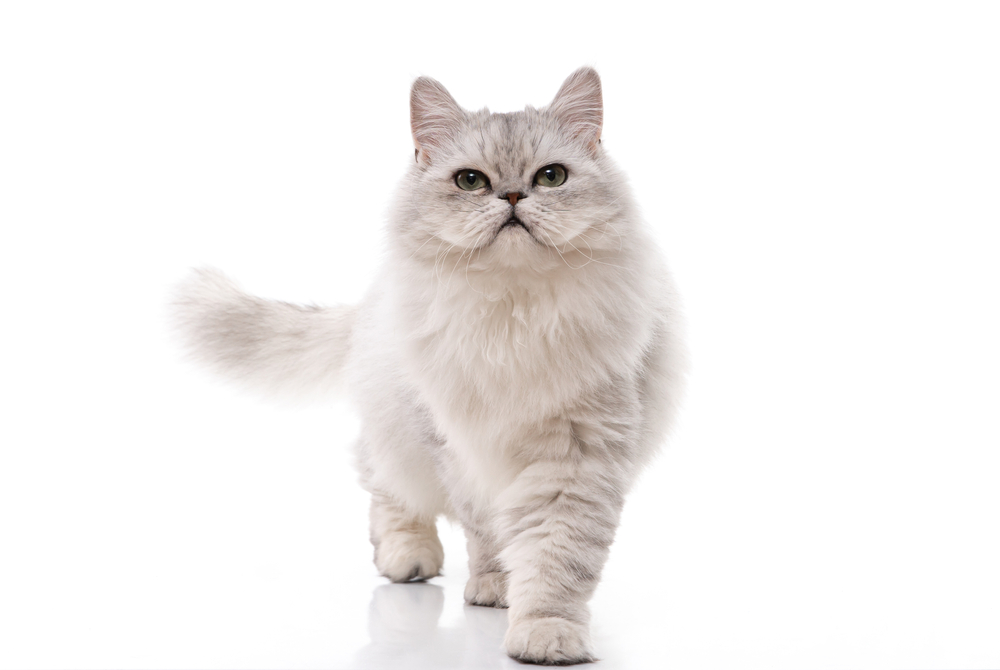
Cats have a knack for carrying themselves with a sense of regal pride, almost as if they believe they’re royalty. This is similar to how narcissists see themselves—often as superior and entitled to special treatment. They strut around with an air of confidence, rarely doubting their own magnificence. While we may joke about cats acting like they own the place, narcissists genuinely feel they’re entitled to control and admiration. This behavior can be both charming and frustrating, depending on the context.
It’s fascinating how both cats and narcissists can make others feel privileged to be in their presence. You might find yourself bending over backward to accommodate their whims, eager to win their approval. Their sense of entitlement can lead to friction, especially when their expectations aren’t met. Yet, their self-assured demeanor often draws people and other animals to them. In their minds, their perceived superiority is justified, and they carry on without a care in the world.
3. They Thrive On Control

Both cats and narcissists have a strong need to control their environment and the people around them. Cats are notorious for ensuring their needs are met on their terms, whether it’s demanding to be fed at a specific time or choosing the coziest spot on the couch. According to psychologist Dr. Jean Twenge, author of “The Narcissism Epidemic,” narcissists operate in much the same way, often using manipulation to maintain control and get what they want. This need for control can lead to tension, especially if their demands aren’t immediately catered to. In both cases, the struggle for power can be an ongoing source of drama.
It’s not uncommon to feel like your cat is the one running the household, dictating when and how things are done. Similarly, narcissists often position themselves as the decision-makers, expecting others to fall in line with their preferences. Despite their controlling nature, both cats and narcissists can be incredibly persuasive, often convincing others to comply with their wishes. The result is a dynamic where everyone else feels compelled to cater to their needs, sometimes at the expense of their own. This behavior can be exhausting, but their charisma often makes it hard to resist.
4. They Exhibit Selective Affection
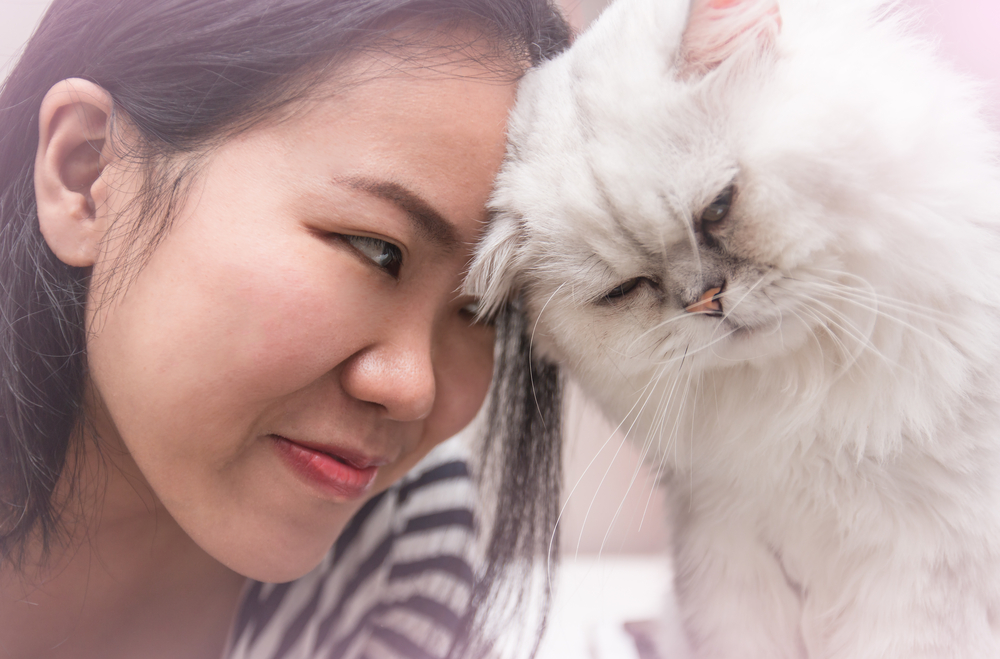
Cats are known for being selective with their affections, exhibiting it only when they deem someone worthy. Narcissists exhibit this trait too, often showering others with attention only when there’s something to be gained. This selective affection can feel like a rollercoaster, one moment receiving all the praise and the next being entirely ignored. Both cats and narcissists leave you guessing, wondering what you did to deserve their favor or their indifference. This behavior keeps people on their toes, never quite sure where they stand.
The unpredictability of selective affection can be both exhilarating and exhausting. One minute, you’re basking in their approval, and the next, you’re left in the cold. This hot-and-cold dynamic keeps you engaged, always striving to be back in their good graces. Narcissists, like cats, are adept at using attention as a reward, ensuring that those around them constantly seek their approval. The allure of their affection is powerful, even when it’s doled out sparingly.
5. They Prioritize Their Needs Over Others’

Cats are notorious for prioritizing their own comfort and needs above all else, and they expect you to understand. This mirrors the narcissistic tendency to put their own needs first, often without considering the impact on others. The American Psychological Association describes narcissists as having an inflated sense of self-importance, which can lead them to disregard the needs of those around them. This self-centered nature can create friction in relationships, especially when others feel sidelined. Whether it’s a cat lounging on your laptop or a narcissist demanding all the attention at a party, their needs come first.
Those who live with cats or narcissists quickly learn that their own needs must often take a backseat. It can be challenging to always cater to their priorities, especially when it feels like your own are consistently overlooked. Yet, this self-centeredness is often coupled with a magnetic charm that makes people want to please them. In many cases, they may not even realize the impact of their behavior, as they are entirely focused on their own desires. The challenge lies in finding a balance between accommodating their needs and ensuring your own are also met.
6. They Disregard Boundaries

If you’ve ever tried to enforce boundaries with a cat, you know how effortlessly they can push them aside. Similarly, narcissists often disregard boundaries, seeing them as obstacles to their desires. They may test limits, ignoring the rules set by others in favor of their own goals. This behavior can lead to tension, especially when others feel disrespected or violated. The challenge is in maintaining those boundaries without being drawn into their web of manipulation.
Cats have a way of charming their way past any barriers you try to set. Whether it’s jumping on counters or sneaking into off-limit areas, they often see boundaries as mere suggestions. Narcissists operate similarly, often pushing limits to see how much they can get away with. This disregard can be frustrating, but it also highlights their determination to get what they want. The key is standing firm and reminding yourself why those boundaries matter.
7. They Master The Art Of Indifference

Cats have perfected the art of indifference, seemingly unfazed by the chaos around them. Narcissists use this tactic too, often acting aloof to maintain control and intrigue. Clinical psychologist Dr. Craig Malkin, author of “Rethinking Narcissism,” notes that this indifference can be a tool for self-preservation and manipulation. When a cat nonchalantly ignores you after a scolding or a narcissist shrugs off criticism, it’s a way of distancing themselves from vulnerability. This detachment can be frustrating, leaving those around them feeling unimportant or dismissed.
Despite their apparent indifference, both cats and narcissists are keenly aware of their surroundings. They know precisely when to engage and when to remain detached, using this awareness to their advantage. Their ability to remain cool and collected in the face of criticism or conflict can make them seem untouchable. This indifference often draws people in, creating an air of mystery and intrigue. However, it can also leave others feeling undervalued and unworthy of their attention.
8. They Use Charm For Manipulation
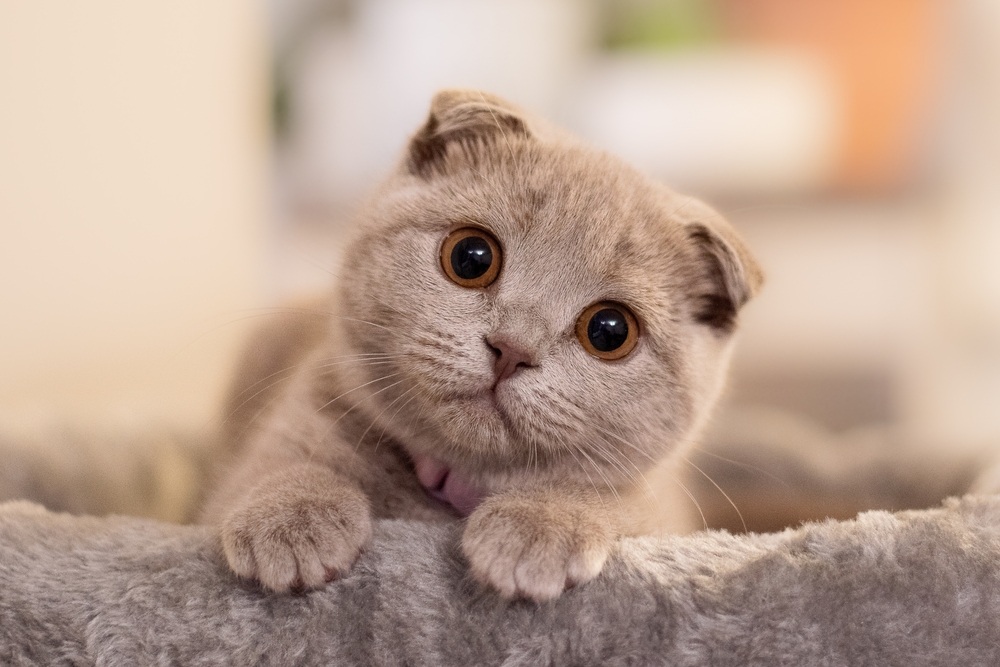
Cats have an uncanny way of using their charm to manipulate those around them. Whether it’s a soft purr or an affectionate head-butt, they know how to get what they want through endearing behavior. Narcissists, too, are masters of using charm to influence others, often disguising their manipulation with charisma and warmth. This can make it difficult to recognize their true intentions, as they’re often wrapped up in a flattering package. The result is a dynamic where others feel compelled to comply with their wishes, sometimes without even realizing it.
Both cats and narcissists have a way of making you feel special, using charm to draw you in and keep you engaged. It’s easy to get caught up in their affection, eager to maintain their approval. Yet beneath the surface, their charm often serves a greater purpose, ensuring their own needs and desires are met. This manipulation can be subtle, making it hard to pinpoint, but its effects are undeniable. The challenge lies in remaining aware of their tactics and maintaining your own sense of agency.
9. They Exhibit Self-Absorption

Cats often act as though the world revolves around them, a trait that’s not unfamiliar to narcissists. This self-absorption can be endearing in small doses but exhausting when it becomes the norm. Narcissists, much like cats, focus intently on their own experiences, often leaving little room for the perspectives of others. This can make interactions feel one-sided, especially when their needs consistently overshadow those of others. Despite this, their self-assured nature can be captivating, drawing others in with ease.
The challenge in dealing with self-absorption lies in finding a balance between acknowledging their needs and ensuring your own are met. Cats and narcissists both require attention and admiration but can be blind to the needs of those around them. This can lead to conflict, particularly when others feel unappreciated or unnoticed. Yet their self-confidence and charisma often hold a certain allure, making it difficult to disengage. Ultimately, maintaining your boundaries and self-worth becomes key in navigating these relationships.
10. They Operate On Their Own Schedule
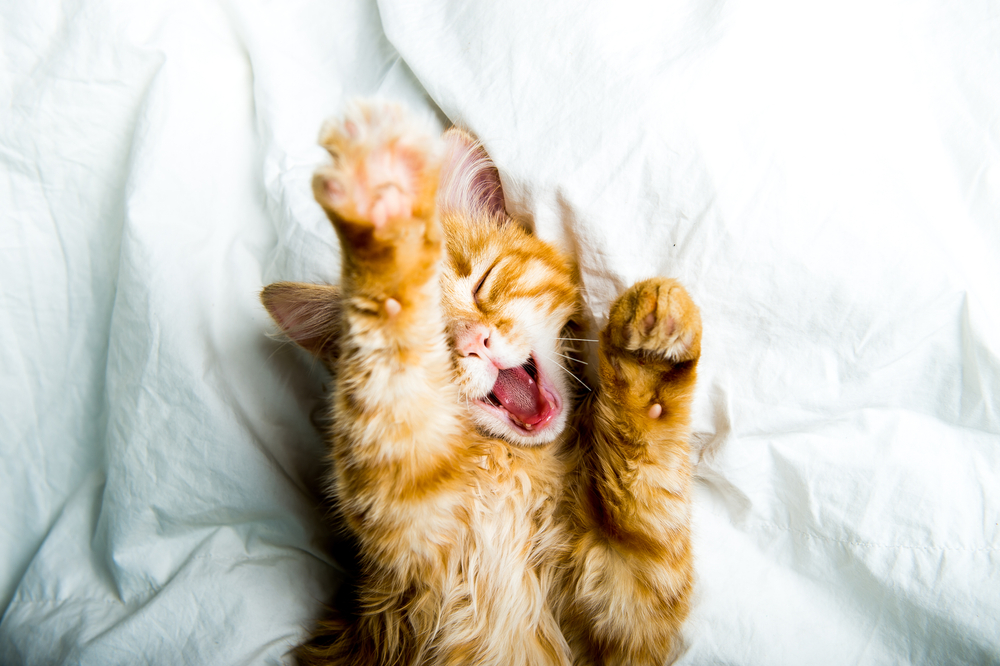
Cats live life on their own terms, often disregarding the schedules of those around them. This independence is mirrored in narcissists, who frequently prioritize their own timelines over others’. Whether it’s a cat waking you up at the crack of dawn or a narcissist running late without apology, both operate on their own internal clocks. This can be frustrating for those who value punctuality and reliability, as their schedules are often disrupted. Yet this independence is also part of their charm, highlighting their self-sufficiency and confidence.
Both cats and narcissists have a way of making others adapt to their schedules, often without regard for the inconvenience it may cause. This can lead to tension, particularly when their timelines clash with those of others. Despite this, their self-assuredness and autonomy can be admirable, showcasing their ability to navigate life on their own terms. The key to managing this behavior lies in setting clear expectations and maintaining open communication. By doing so, you can find a balance between accommodating their needs and ensuring your own are respected.
11. They Cultivate An Air Of Mystery
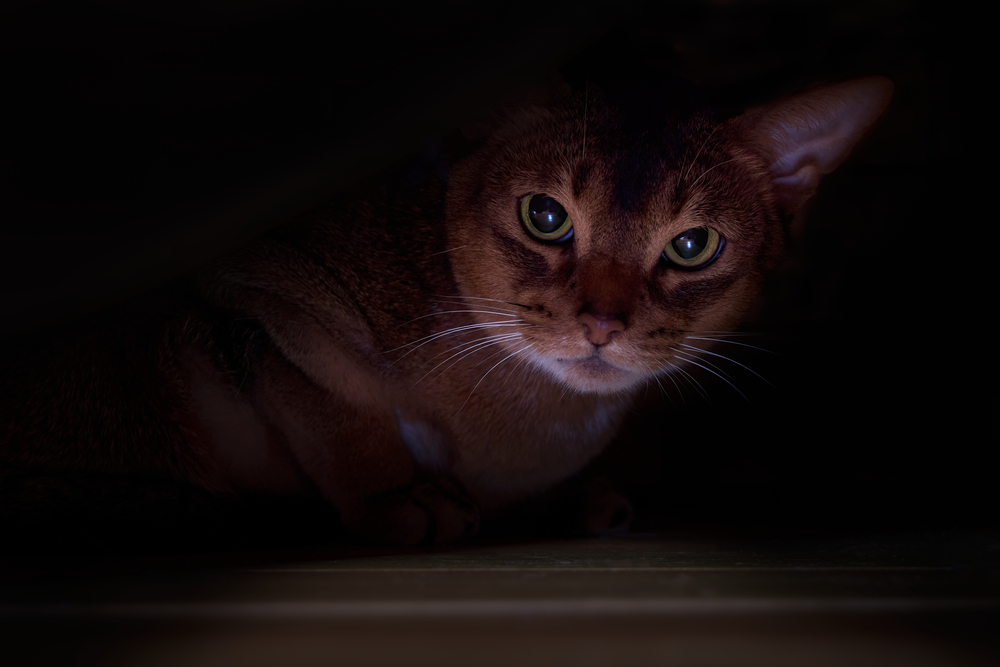
Cats have an enigmatic quality that keeps people guessing, much like narcissists who thrive on maintaining an air of mystery. This allure is part of what draws people in, eager to uncover the person behind the facade. Both cats and narcissists use this mystery to their advantage, keeping others intrigued and engaged. This can be exciting, offering a sense of adventure and unpredictability. However, it can also lead to frustration, as this mystery often masks deeper vulnerabilities and insecurities.
The challenge in dealing with mystery is in finding the balance between intrigue and transparency. While the allure of the unknown can be captivating, it can also prevent deeper connections from forming. Cats and narcissists both use mystery to maintain control, often revealing only what they choose. This can leave others feeling excluded, unsure of where they stand. The key is in maintaining open communication and seeking clarity where possible, allowing for a deeper understanding of their true nature.
12. They Require A Loyal Fanbase
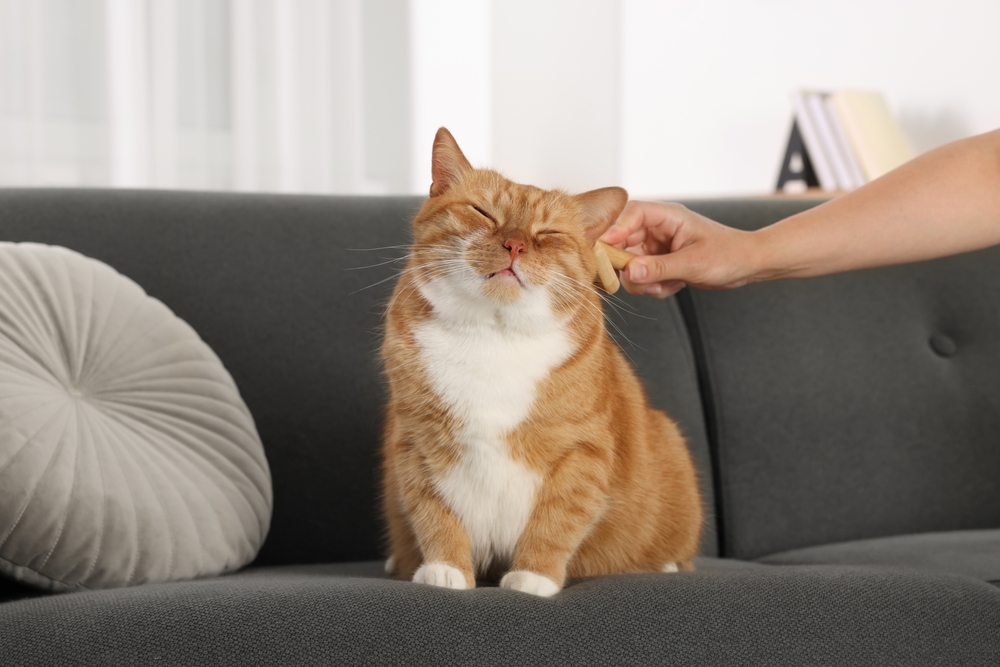
Cats often demand loyalty and admiration, much like narcissists who expect unwavering devotion from those around them. This need for a fanbase can create a dynamic where others feel compelled to constantly shower them with praise. While this can be rewarding, it can also be exhausting, particularly when their needs overshadow those of others. Cats and narcissists both thrive on this admiration, using it to bolster their own self-esteem. This can create a feedback loop where their sense of worth becomes tied to the approval of others.
Navigating this need for loyalty requires striking a balance between offering support and maintaining your own boundaries. It’s easy to get caught up in their charm, eager to please and gain their favor. Yet it’s important to remember that your own needs and desires are equally valid. By setting clear boundaries and maintaining your own sense of self, you can support them without sacrificing your own well-being. This balance ensures that the relationship remains healthy and mutually beneficial.
13. They Enjoy Being The Center Of Attention
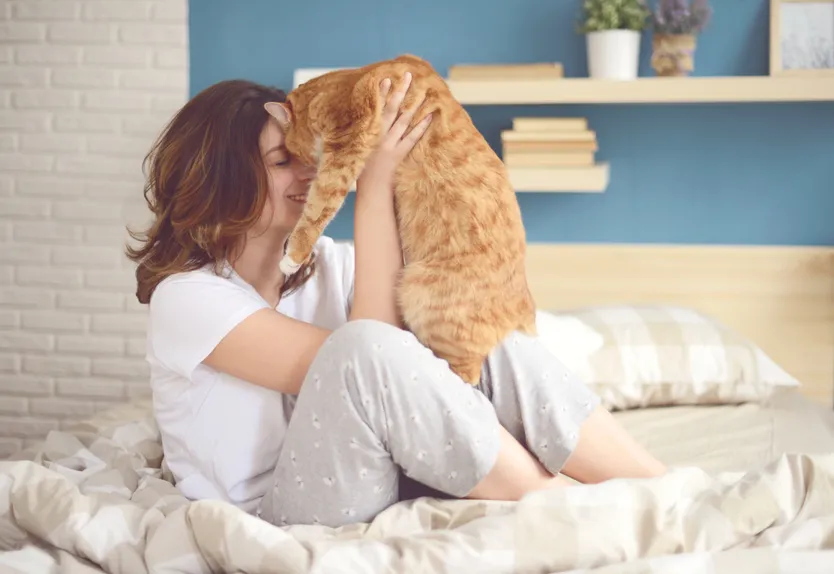
Cats relish being the focus of attention, much like narcissists who thrive in the spotlight. This love of attention can be endearing, drawing others in with their charisma and charm. However, it can also lead to frustration, particularly when their need for admiration overshadows that of others. Both cats and narcissists excel at ensuring all eyes are on them, using their presence to captivate and engage. While this can be rewarding in small doses, it can become overwhelming when it becomes the norm.
Balancing this need for attention requires clear communication and mutual respect. It’s easy to get swept up in their charm, eager to offer praise and admiration. Yet it’s important to remember that your own needs and desires are equally valid. By setting clear boundaries and maintaining open communication, you can ensure that the relationship remains balanced. This ensures that both parties feel valued and respected, creating a dynamic that is both rewarding and sustainable.
14. They Display An Unwavering Confidence
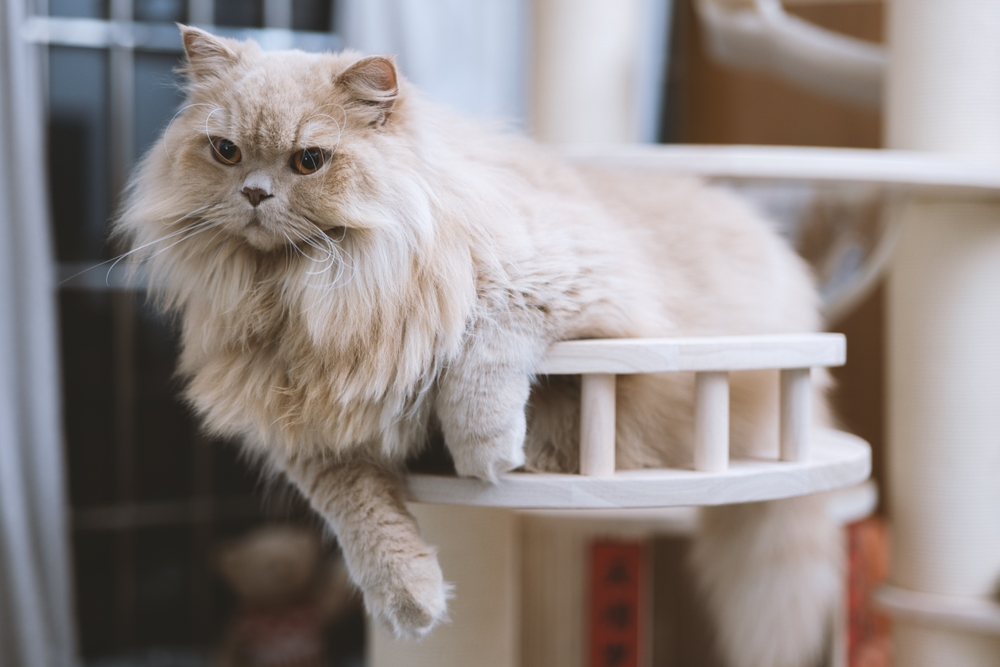
Cats carry themselves with an undeniable confidence, much like narcissists who exude self-assuredness in all they do. This confidence can be magnetic, drawing others in with their certainty and poise. It’s easy to admire their self-assured nature, eager to emulate their confidence and self-belief. However, this confidence can sometimes border on arrogance, particularly when it begins to overshadow the needs of others. Balancing this confidence requires self-awareness and empathy, ensuring that their own needs do not eclipse those of others.
Maintaining this balance requires clear communication and mutual respect. While it’s easy to admire their confidence, it’s important to remember that everyone’s needs and desires are equally valid. By setting clear boundaries and maintaining open communication, you can ensure that the relationship remains balanced. This ensures that both parties feel valued and respected, creating a dynamic that is both rewarding and sustainable. Ultimately, this confidence can be a source of inspiration, reminding others of the power of self-belief.
